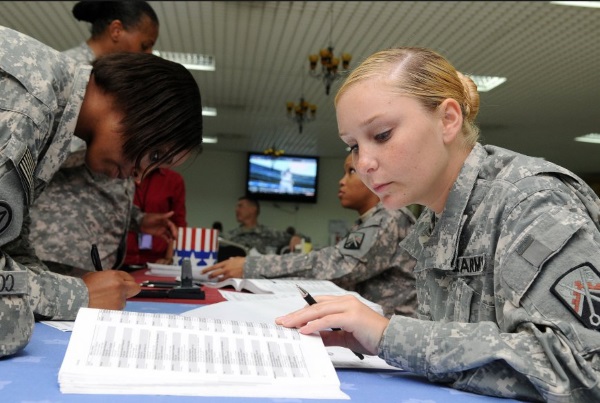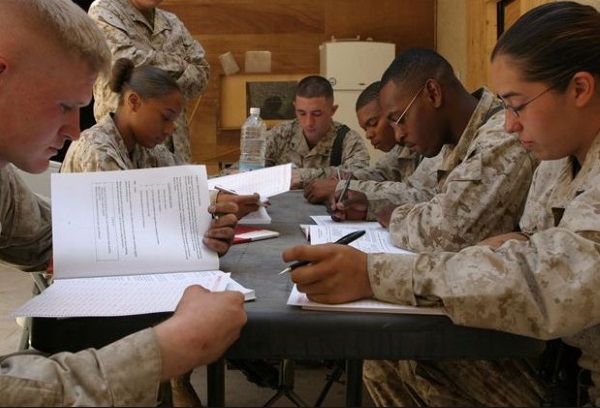Can You Enlist In The Military With A Ged

For many young Americans, military service represents a path to opportunity, discipline, and national pride. However, a significant question looms for those who pursued an alternative path to high school graduation: Can you enlist in the military with a GED?
The answer, while not a simple yes or no, significantly impacts access to military careers for a substantial portion of the population.
This article delves into the complexities of military enlistment with a GED, exploring eligibility requirements, the impact on career prospects, and the evolving policies shaping access to service.
We will examine official military policies, analyze data related to GED enlistees, and consider the perspectives of recruiters and potential recruits.
GED Enlistment: The Basic Requirements
The U.S. military generally accepts GED holders, but acceptance is contingent upon meeting further qualifications.
These often include achieving higher scores on the Armed Forces Qualification Test (AFQT), a section of the Armed Services Vocational Aptitude Battery (ASVAB). These criteria exist to assure the recruit has the required aptitude.
According to Department of Defense Instruction 1304.31, individuals with a GED often need to demonstrate a higher level of cognitive ability on the ASVAB than those with a traditional high school diploma.
Tier System and Educational Credentials
The military uses a tier system to categorize potential recruits based on educational credentials.
Tier 1 typically includes individuals with a standard high school diploma, while Tier 2 comprises those with a GED certificate.
Tier 3 includes those with neither a high school diploma nor a GED, and their enlistment opportunities are severely limited, if available at all.
Each military branch sets its own specific policies regarding GED acceptance and required ASVAB scores.
Some branches might prioritize high school graduates, limiting the number of GED holders they accept annually.
This variability underscores the importance of contacting a recruiter from the specific branch of interest for accurate and up-to-date information.
The Impact of a GED on Career Options
While a GED can open the door to military service, it can also affect the range of available career fields. Some highly technical or specialized roles may require a traditional high school diploma or further education.
This restriction might be due to the advanced training involved or the perceived need for a stronger academic foundation.
Furthermore, promotion opportunities may be impacted. Enlistees with a GED might need to pursue additional education or certifications to advance to higher ranks.
This requirement ensures they possess the necessary skills and knowledge for leadership roles.
It's vital for potential recruits with a GED to discuss their career aspirations with a recruiter to understand any potential limitations.
Understanding these restrictions can allow them to make informed decisions about their military career path.
Perspectives on GED Enlistment
Military recruiters often express mixed opinions regarding GED enlistees. Some value the life experiences and maturity that these individuals may bring to the service.
Others voice concerns about academic preparedness, citing the need for more extensive training to bridge any knowledge gaps.
"We look for individuals who are motivated and dedicated, regardless of how they obtained their high school equivalency," said Sergeant Major Davis, a recruiter for the U.S. Army. "A strong ASVAB score and a positive attitude can overcome any perceived disadvantages."
From the perspective of potential recruits with a GED, the military can offer a valuable opportunity for personal and professional growth.
It can provide structure, job training, and educational benefits that might otherwise be unavailable.
The military's GI Bill is a powerful incentive, offering substantial financial assistance for college or vocational training after service.
Looking Ahead: Evolving Policies and Opportunities
Military enlistment policies are constantly evolving in response to changing societal trends and workforce needs.
The increasing emphasis on technology and cyber warfare may lead to adjustments in educational requirements for certain career fields.
Future recruits with a GED should prioritize continuous learning and skill development to enhance their enlistment prospects.
Participating in vocational training programs or earning certifications can demonstrate a commitment to self-improvement and make them more competitive applicants.
Ultimately, while enlisting with a GED presents certain challenges, it remains a viable pathway to military service for many Americans.
By understanding the requirements, addressing potential limitations, and demonstrating a strong commitment to success, GED holders can achieve their goals and contribute to the defense of the nation.


















